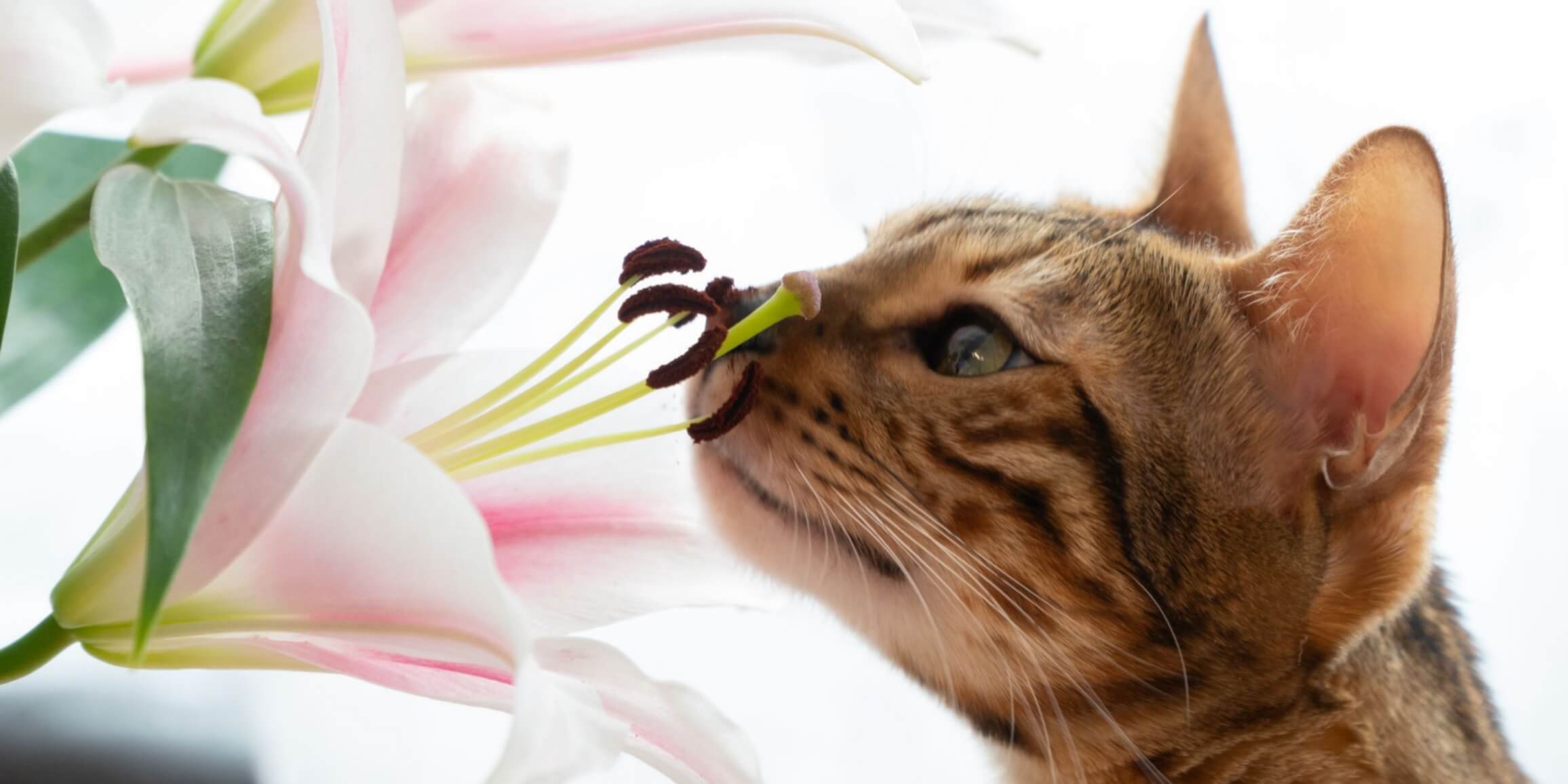Swing Into Spring
Published April 5, 2021


During the Easter holiday season, we want to remind pet parents to keep Easter baskets and candy out of their pet’s reach, as well as some other surprising spring items, like Easter lilies and other poisonous plants. Here’s our list of foods and foliage to be mindful of.
Chocolate
Everyone enjoys chocolate in Easter baskets, including pets. But even a little bit of chocolate could be fatal to cats and dogs. A mixture of cocoa beans and cocoa butter, chocolate contains theobromine and caffeine, which cause dangerous stimulation and increased heartrate. Generally, the more bitter the chocolate is, the more toxic it can be. In fact, unsweetened baking chocolate contains about seven times more theobromine than milk chocolate, while white chocolate, a combination of cocoa butter, sugar, butterfat, milk solids, and flavorings but no cocoa beans, contains negligible amounts.
Xylitol Sweeteners
Xylitol is a sweetener that is often added to candy, gum, and even some peanut butter. Dogs can develop dangerously low blood glucose levels and liver failure from ingesting xylitol. Even a very small amount can be deadly.
Essential Tip: Click here for more dangerous foods to keep away from pets.
Lilies
Easter lilies (Lilium longiflorum), tiger lilies (Lilium tigrinum), rubrum or Japanese showy lilies (Lilium speciosum and Lilium lancifolium), and various day lilies (Hemerocallis species) are extremely dangerous to cats. These beautiful and colorful plants are not only grown as ornamental plants in the yard but are also commonly found in bouquets and flower arrangements. While the exact toxic component is unknown, cats appear to be the only species sensitive to its deadly effects. A cat licking or chewing on the plant may develop potentially fatal kidney failure. Even small ingestions, such as a few bites on a leaf or ingestion of pollen, can be deadly.
Rhododendron (Rhododendron spp.)
Rhododendron species contain a toxic substance known as Grayanotoxin. Grayanotoxins can be very dangerous if pets ingest plants containing them. This type of poison causes stomach upset and can also affect heart rate and the nervous system;as few as two leaves may cause serious poisonings. A common plant found in this family is the Azalea, which is often used as an ornamental plant.
Cardiac Glycoside-Containing Plants
These types of plants contain a poison known as cardiac glycosides. The most commonly recognized is digitalis, which is sometimes used in medication to treat cardiovascular disease in people and pets. Plants that contain this type of poison are highly toxic because they can cause life threatening effects on the heart. Examples of these types of plants include oleander (Nerium oleander), lily-of-the-valley (Convallaria majalis), foxglove (Digitalis purpurea), certain milkweeds (Aesclepias spp.), and squill (Virginea maritime.) All parts of cardiac glycoside containing plants are toxic, and even small amounts can be deadly.
Essential Tip: Find a longer list of dangerous plants here.
If your pet has ingested any of these items, it is important to seek emergency care immediately.
Essential Tip: For any non-emergency gastrointestinal issues, such as minor diarrhea or vomiting, Essentials PetCare offers a GI Upset Package, which is $100 for dogs and $90 for cats. A doctor’s exam, lab testing, diagnostics, and treatment recommendations are all included. We do ask that you bring a stool sample in a labeled bag or container at your pet’s visit.
Prices subject to change. See current prices: https://essentialspetcare.com/services.



